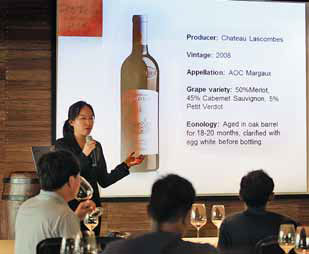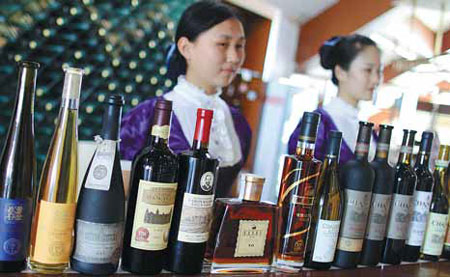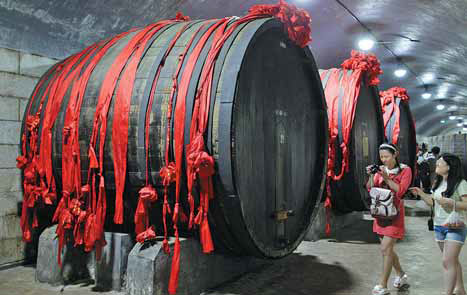Your are Here :Home> News>Biz Updates
Toast of China's wine industry
Updated : 2014-07-03
By Fu Chao (China Daily)
In 1892, Zhang Bishi, a successful overseas Chinese businessman in Southeast Asia, set up China's first modern winery in Yantai.
It is said that Zhang heard about the coastal city from his French friends, who said the city's climate and sunshine were perfect for a wine-producing chateau.
So Zhang started the now world-recognized Changyu Pioneer Wine Co. After 120 years the advice he received was proven wise - Yantai is now the country's largest wine production center.
The city's wine industry is booming with leading companies like Changyu and a range of emerging vintners. It is the only vine and wine city in Asia and has attracted winemakers around the world to set up chateaus.
Yi Fenghuang, head of the city's vine and wine bureau, said during a recent conference that the city has developed a comprehensive production chain from vine cultivation to bottling and trading, as well as wine culture and tourism.
Yi said that the city has 152 wine companies covering a combined 346.7 sq km. Their wine output in 2013 accounted for 28 percent of country's total, said Yi.
"With an output of 28 percent, revenues and profits were 53 percent and 67 percent respectively of the country's total. It's obvious how well the wine companies in Yantai are doing," said Yi.
Changyu's revenue before tax last year was 4.3 billion yuan ($688 million), top in the country, said Sun Jian, deputy manager of the wine company.
Among the Top 10 wine companies selected by international research organizations, only two have a history of over 100 years and Changyu is the only one in Asia, said Sun.
Sun also noted that the company has six vineyards, eight chateaus and 20 factories in China. Among them, 12 factories are in Yantai.
Chateau Changyu Castel, the country's first professional winery, is located in Yantai with an "international wine city" built in 2008 and a wine culture museum.
The company is developing a new international wine city project that includes a vine and wine research center and an international trading center.
According to Yi, Yantai now has 50 chateaus including those under construction. Every year the municipal government invests 10 million yuan to support major winery projects and vineyards.
Pula Valley, one of the major projects now under construction, aims to build a chateau, vineyard cluster and a range of wine-themed recreation facilities on the hills in the city's Laishan district.
The 9 billion yuan, 24,3000 sq m development will have 54 chateaus, vineyards where tourists can pick grapes, a shopping mall with wine products and exhibition area where visitors can learn about vine cultivation and wine culture.
The projects will generate 15,000 jobs for farmers, according to district officials.
Already complete is an experience center and exhibition center that offer wine tasting and lectures.
Local wine companies and chateaus are now a backbone in Yantai's economy. Chateau Changyu Castel and the 100-year cellar in the wine culture museum alone attract more than 1 million visitors every year, according to the data from the municipal government.
|
Wine tasting and culture at one of the 54 Pula Valley chateaus. Zhu Xingxin / China Daily |
|
Wines on sale in the wine tasting center of Chateau Changyu Castel. Zhu Xingxin / China Daily |
|
Century-old cellar at the Changyu Wine Culture Museum is a popular tourist attraction today. Zhu Xingxin / China Daily |



